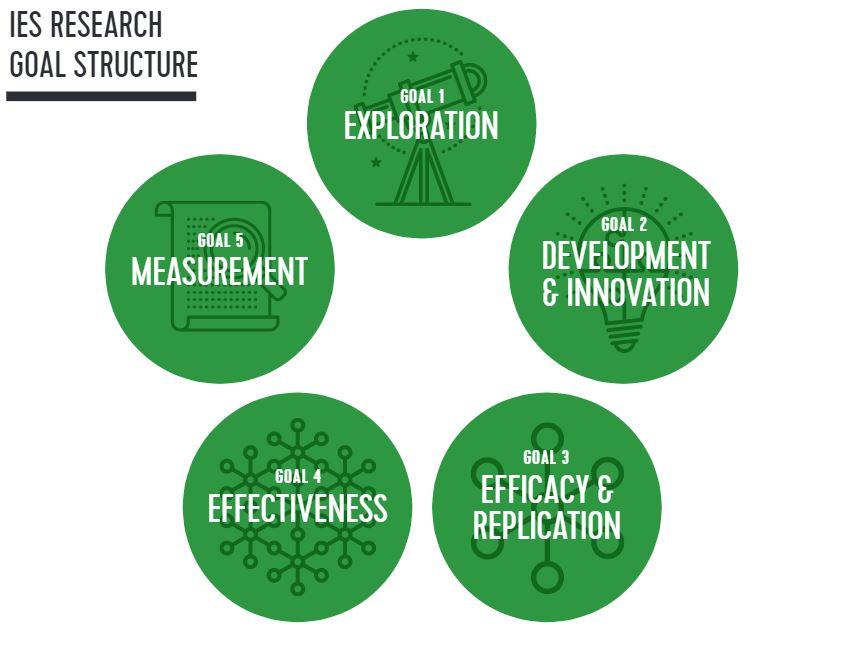UPDATED SEPTEMBER 5, 2017
The Institute of Education Sciences is committed to continuous improvement and this includes gathering public input on our work and our resources. Right now, we are seeking feedback on two important aspects of our work:
- Two of our research goals, Efficacy and Replication and Effectiveness; and
- Revisions to the What Works Clearinghouse Standards and Procedures handbooks.
Brief overviews of these opportunities are below, with links to where you can get more information and how to submit input. And, as always, if you have thoughts or ideas on how IES can better serve the field, please email us at Contact.IES@ed.gov.
IES Research Goals

IES is seeking input on how we can improve our education and special education research programs, specifically around two of our five research goals—Efficacy and Replication (Goal 3), and Effectiveness (Goal 4). We want to know if these goals, as currently configured, are meeting the needs of the field and whether we should consider changes that would support more replication and effectiveness studies.
The request for feedback comes after IES convened a group of experts to discuss what should come after an efficacy study. This Technical Working Group met last fall and looked at the replication and effectiveness studies that IES has funded over the years and made suggestions on actions IES could take to increase the visibility and support of replication studies, encourage more effectiveness research, and further our understanding of causal mechanisms, variability in impacts, and implementation factors. We shared some of the findings and suggestions in a blog post earlier this year and posted a summary of the working group’s discussion on the IES website (PDF).
Please take a few moments to read the Invitation for Public Comment letter to see the specific questions we are seeking to answer, and send your input and ideas to Comments.Research@ed.gov. We ask that you respond by Monday, October 2, 2017.
What Works Clearinghouse Handbooks
IES is also seeking feedback on revisions to the What Works Clearinghouse (WWC) Procedures and Standards Handbooks. The handbooks describe how the WWC reviews effectiveness research to determine what works in public education.
The proposed Handbooks (WWC Standards and WWC Procedures will now have separate handbooks) have been developed by the WWC in consultation with experts and are made available to users in draft form as part of the process for updating WWC standards. The handbooks can be reviewed on the WWC website and any comments can be sent to contact.wwc@ed.gov. Feedback is requested by August 30. (SEPT. 5 UPDATE: The deadline for submitting feedback has passed although questions and ideas are welcome at the same address.)
The revisions to WWC handbooks are part of the WWC's ongoing work to increase transparency, refine its processes, develop new standards, and create new products. In fact, the WWC recently launched a new product that was developed based on public input.
For the latest IES, follow us on Twitter and Facebook, and receive email updates through the IES News Flash.
Compiled by Dana Tofig, Communications Director, IES